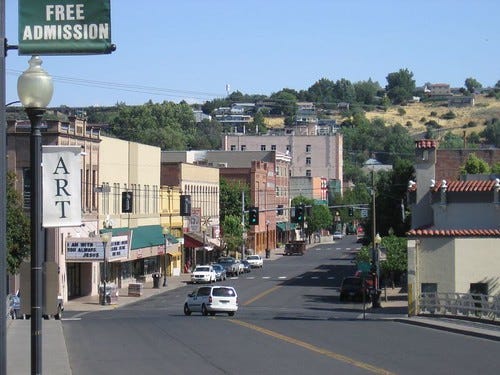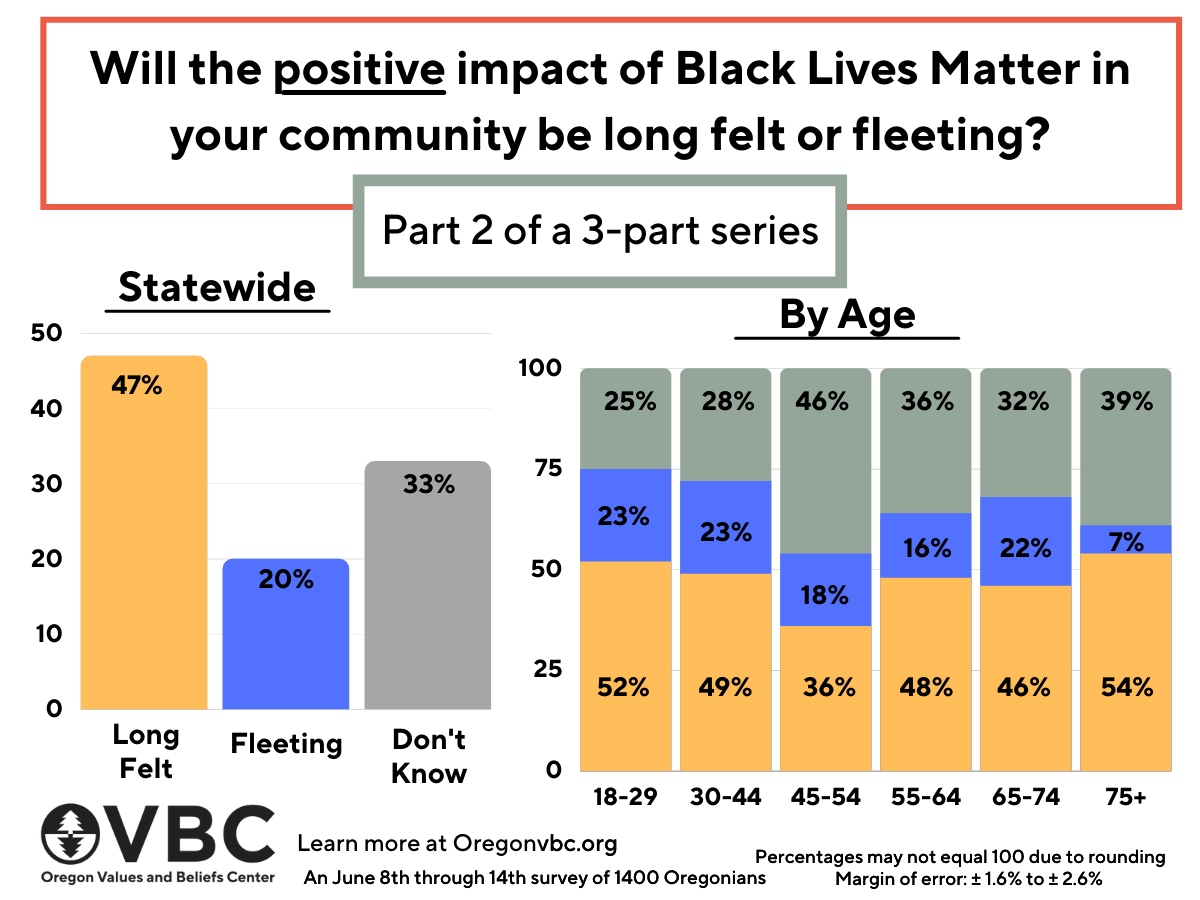The Weekly Way (7/23/21)
Covering schools, redistricting, cannabis, and the meaning of the "Oregon Way."
Stay tuned for special announcement:
Ben Bowman, Alex Titus, and Kevin Frazier are creating an efficient, news-aggregating newsletter. You can check out a sample here.
We will post additional updates soon!

Editor’s Note:
Driving through Montana, I stopped at nearly every historical marker. At home in Oregon, I'd zoom right by the equivalent signs.
When I got my haircut at Bob's Barber Shop on Broadway in Red Lodge, I asked about local Montanan politics, the state of the local economy, and details on why and how the barber ended up in this small slice of a huge state. In Portland, I'd probably just settle for talking about the weather.
A stop at Red Lodge Ales was an excuse to get some great beers and meet new people. If I were in Bend, I'd stop by Crux but never bother to talk to new folks; after all, I'd surely be meeting some friends there.
There's something about being a visitor somewhere that makes you more willing to ask questions, explore history and connect with strangers. That sense of curiosity shouldn't be reserved for when you're traveling in a new spot. That willingness to admit your lack of expertise should be true in your own community. That acceptance of the fact that others have valid and varied perspectives should apply to conversations with your neighbors, not just newly discovered friends.
The lack of curiosity among Americans is a threat to our democracy. More and more folks feel more and more certain they have the exclusive answer to the most complex questions society has arguably ever faced. This certainty has led to ideas being dismissed too quickly (see the Covid lab-leak hypothesis) and others being embraced too wholly (see unabashed support for raising the minimum wage despite, at best, inconclusive and mixed economic support for the policy).
A perfect storm has formed to quash those willing to ask questions. Social media is no longer a space that caters to the curious. A wrong question even a decade ago could come to haunt your future self. Our K-12 curriculum often requires students to identify the "right" answer even in the context of ambiguous inquiries such as, why was the Civil War fought? Our politics rewards those who refrain from flip flopping by signing unequivocal pledges and voicing undying support for specific demagogues.
We need a coalition of the curious. A coalition that respects those who dared ask a "wrong" question. A coalition that encourages experimentation with new ideas, policies and plans. A coalition that shuns the ease of embracing the familiar — be it a setting, a social circle or an ideology — or the growth promised by learning from novel experiences and encounters.
This coalition can transform our politics, our culture and our economy. On politics, the space for curiosity has rapidly shrunk. According to the Pew Research Center:
Twenty years ago, the median Democrat was to the left of 64% of Republicans, while the median Republican was to the right of 70% of Democrats. Put differently, in 1994 23% of Republicans were more liberal than the median Democrat; while 17% of Democrats were more conservative than the median Republican. Today, those numbers are just 4% and 5%, respectively.
That was in 2014. This has assuredly gotten worse in the past seven years. Pew refers to this trend as an increase in "ideologically consistent" individuals. A more blunt phrase would be "ideologically incurious" individuals. When politics starts to reward asking questions, candidates and voters alike can start learning and, as a result, progressing.
On culture, no one likes a know-it-all, unless, of course, you entirely agree with that person. We've become a country of know-it-alls. WebMD experts, Google search masters, and The New York Times or Wall Street Journal consumers who refuse to accept the possibility that other sources of quality information may exist. Experts be damned.
In this culture, it's easy to spot and, consequently, shun those who somehow don't know all you know. In such an ethos, there's no point in seeking out strangers. That's why we need to consciously pursue ways to introduce ourselves and others to new perspectives. The most transformative way would be through a national service program that sent kids across the country to really learn what it's like to grow up in another part of our nation. Other solutions, like Cass Sunstein's suggestion for social media feeds that introduce you to new ideas, would help, too.
On the economy, curiosity is essential to innovation. Case in point: the lightbulb. It was the product of a culture of curiosity. Dozens, if not hundreds, of individuals were seeking out the best way to produce consistent, long-lasting light. Eventually, one guy found the answer, but only by being immersed in a community of similarly curious individuals.
Curiosity may have killed the cat, but incuriosity will end our democracy, stifle our economy and cabin us to befriending only those who share our ideas.
Will you join the coalition of the curious?
Or, given that you’re likely one of the 950 people who are a part of this community, will you ask three of your friends to join this coalition?
My promise to you is that this will always be a platform for asking questions rather than asserting answers.
Here’s to a better Oregon,
Kevin
**Portions of this piece originally ran in The Fulcrum
To think on: the impact of Black Lives Matter
To read:
Sue Hildick gives parents some guidance on what really matters when it comes to identifying the best school for your youngster.
read the full piece here.
**************
Rich Vial reflects on his love of politics and why that love can be hard to maintain during periods of partisanship.
read the full piece here.
**************
Jim Moore lays out the pieces of a redistricting puzzle and encourages you to do the same via new tools to draw your own districts.
read the full piece here.
**************
Peter Sage reminds Oregonians that the growth of the cannabis industry was by design — and that the continued growth of the industry should be encouraged.
read the full piece here.
**************
Mark Hester, a farm-raised journalist, asks if Nick Kristof, a farm-raised journalist, is qualified to serve as governor.
read the full piece here.
*************
George Murdock, Umatilla County Commissioner, questions if the “Oregon Way” really means anything in these hyper-partisan days.
read the full piece here.
*************
Alberto Moreno celebrates what he regards as a changing of the guard when it comes to the next generation of leaders leading the “Oregon Way.”
read the full piece here.
**************
Kyle Palmer recalls his days as an umpire and longs for a political “game” in which both sides agree to play by the rules.
read the full piece here.
**************
Kevin Frazier asks what your 12 priorities are for the next governor.
read the full piece here (then leave a comment)!
To do:
Invite three friends to subscribe to The Oregon Way
Nominate a contributor — send Kevin their name and why you think they’d be a good fit for the blog (kfraz@berkeley.edu)
Submit a letter to the editor. How are we doing? What are we missing? How do you define The Oregon Way?
SHAPE THE FUTURE OF THE OREGON WAY >>> Take this survey!




